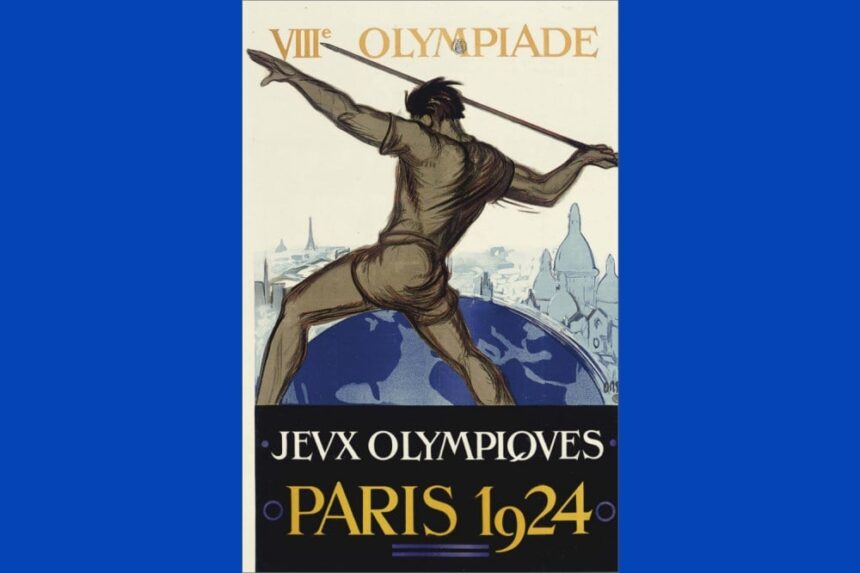Summary by Geopolist | Istanbul Center for Geopolitics:
This week, Paris becomes the second city, after London, to host the Summer Olympics three times, with previous games held in 1900 and 1924. Despite the honor, the 2024 Olympics face significant challenges. The Seine River, polluted and off-limits for swimming since 1923, is being cleaned for the triathlon and marathon swimming events. This expensive cleanup has sparked controversy among Parisians, some of whom are planning a “poop-in” protest.
The games are overshadowed by international crises, including the Russian-Ukrainian war and Middle East conflicts, raising security concerns. Domestically, fears of a far-right political shift and disruptions to daily life due to an influx of tourists add to the tension.
Interestingly, Paris has faced similar issues before. The 1900 and 1924 Olympics were also marred by geopolitical tensions, domestic turmoil, and public indifference. In 1900, the games coincided with the Exposition Universelle, leading to logistical issues and low local interest amid the Dreyfus Affair and anti-German sentiment. By 1924, France was recovering from World War I, with lingering enmity towards Germany, which was excluded from the games.
Today, security for the 2024 games is unprecedented. There are threats of cyberattacks and drone swarms, with extensive measures planned to protect the city. Despite these issues, the historical resilience shown in previous Paris Olympics offers some hope for overcoming the current challenges.
Read more below.
For Paris, the Olympics Chaos Is Déjà Vu
This week, Paris joins London in becoming the second city to host the Summer Olympics three times—the two previous occasions for Paris were 1900 and 1924. Playing host to a single Olympic festival, much less three of them, has traditionally been considered a prized accolade, and French and Parisian leaders are seeking to make the most of this opportunity to show off the “City of Light” to an admiring world.
The Seine River, for example, in which it has been illegal to swim since 1923 due to heavy pollution, is being showcased as the venue for 2024’s triathlon and marathon swimming events. To render the E. coli-laced waters safe for the athletes, organizers have launched a hugely expensive cleanup campaign, whose effectiveness Paris Mayor Anne Hidalgo displayed by diving into the river in advance of the Games.
But the costly cleanup campaign has not gone down well with many French people, who see it as both wasteful and dubious in its promises. As if to prove the program won’t work, one protest group is threatening a “poop-in,” a mass defecation in the Seine before the politicians take their dive.
The runup to these Games has been plagued with considerable anxiety and acrimony of this sort. Paris 2024 comes amid two international crises—the ongoing Russian-Ukrainian war and the bloodbath in the Middle East, especially in Gaza, following the Hamas attack on Israel in October 2023—which have led to worries over possible attacks on the city and Olympic venues during the festival and arguments over which nations can compete and how. There have also been agonies over the potential rise of a far-right government, and fretting over the effects on the daily lives of ordinary Parisians by an invasion of tens of thousands of Olympic tourists.
Yet one interesting aspect of all this controversy—and what might possibly be consoling to the French hosts—is that this whole scene has a strong déjà vu quality. Paris and France have seen most of this before—the geopolitical tensions, far-right turmoil, and domestic apathy alike—in 1900 and 1924. That history offers important lessons for how Paris can survive the challenge facing it this summer.
- Swimmers jump into the Seine during the Paris Olympics in 1900. Wikimedia Commons
- The U.S. rowing crew team takes a trial run down the Seine during the 1924 Olympics.Bettmann Archive/Getty Images
The organizers of the second official edition of the “Olympic Games of the Modern Era,” Paris 1900, did not have to worry about poop-ins, but there were plenty of geopolitical and domestic issues on hand that gave crushing headaches to Pierre de Coubertin, the “father” of the modern Olympic movement and chief backer of Paris as the site of the 1900 festival. These Games were organized as an awkward appendage to Paris’s Exposition Universelle Internationale (World’s Fair), which meant, among other absurdities, that the fencers were officially registered in the Exposition’s cutlery competition, while the rowers were relegated to commercial shipping.
The 1900 Games took place against a backdrop of rising tension between the colonial powers and Chinese nationalists, which culminated in the Boxer Rebellion of 1900. Japan was on a collision course with Russia that would bring military conflict between those two powers in 1904. The Americans who journeyed to Paris in 1900 were still basking in the glow of their nation’s trouncing of Spain in the Spanish-American War. Spain debated boycotting the Paris Games because the Americans would be there. Perhaps Spain should have stayed home, because that country’s only medals came in pigeon shooting and pelota—this last achievement attained because the only other team in the tournament, France, failed to show up.
One might think it odd that a French squad would have neglected to appear on its home turf, but in fact, the French populace overall had precious little interest in the sporting events connected to their Exposition, and in any event, they were still caught up in the bitterly divisive controversy surrounding the Dreyfus case. For all the French cared, this newfangled Olympic nonsense could have transpired on the moon.
The French in 1900 were also caught up in the ongoing rivalry with neighboring Germany, which just 30 years before had humiliated France in the Franco-Prussian War. So passionate was the anti-Boche sentiment that French President Félix Faure tried to keep the Germans out of the Paris Games entirely. When that effort failed—Coubertin insisted the Germans be kept in to support the fable that his cherished Games were “above politics”—French organizers on the ground went out of their way to make their “arch-enemies” feel unwelcome.
Claiming that the German team possibly included spies and even terrorists, they billeted the Boche in tightly guarded and poorly appointed dwellings far from the competition venues. Upon entering their quarters, the Germans found graffiti on the walls saying Cochons—à bas la Prusse! (“Pigs—Down with Prussia!”). Team captain Fritz Hofmann discovered a reeking pile of excrement in his bed. German athletes were not given competition schedules and were not allowed to train on French equipment. Much to France’s delight, the Germans ended up finishing low in the national standings, and some German medalists never did get their awards. Yet for all the other athletes, the Games went on.
The athletes who will be swimming in the Seine at the Paris 2024 Games will probably not be aware that 124 years earlier this fabled river was also used for the swimming events. Swift currents made for fast times in 1900, but heavy pollution brought on nasty skin diseases. The track and field athletes did not have it much better. Sprinters ran on undulating grassy surfaces in the vast Bois de Boulogne park, while discus and javelin throwers, also competing in the park, had to worry about hitting strolling lovers.
Athletes clear a jump during the men’s 3,000-meter steeplechase in the Colombes suburb of Paris during the Summer Olympics on July 9, 1924. Central Press/Hulton Archive/Getty Images
Fast forward to 1924. Coubertin was still the central figure in the modern Olympic movement, and he wanted to bring the Games back to Paris to make up for the embarrassments of 1900. The 1924 festival did largely fulfill that desire, but it, like the 1900 festival, took place amid pressing geopolitical and domestic challenges. France, albeit one of the victors in World War I, was yet to recover from the terrible human and material losses of the war and the Spanish flu pandemic of 1918-19.
Defeated Germany was still seen as a threat, and in 1923 France occupied Germany’s Ruhr Valley as punishment for Berlin’s failure to pay war reparations on time. In that same year, Adolf Hitler staged his “Beer Hall Putsch” in Munich. The putsch was a failure, but it signaled a new threat on the horizson. Continuing Franco-German enmity meant that Germany was not invited to the Paris Games, and did not appear there. The French economy was in such terrible shape that the franc had to be devalued in 1923.
On the domestic political front, the far-right was beginning to make its presence felt. Ten years later, on Feb. 6, 1934, fascist leagues would riot on the Place de Concord in an effort to overthrow the government. (Now, 100 years later, France’s far-right is again on the ascendency in the form of Marine le Pen’s National Rally Party.) For the 1924 Games, fears of disruptions by foreign and domestic actors meant unprecedented security measures. And the lesson from 1900—no more swimming events in the Seine—was dutifully heeded (though flagrantly ignored today).
- The Egyptian Olympic team takes part in the opening ceremony of the Summer Games in Paris in 1924. FPG/Hulton Archive/Getty Images
- British athletes take part in the opening ceremony of the Summer Olympics in Paris in 1924. Central Press/Hulton Archive/Getty Images
- The exclusion of Germany from the 1924 Olympics, and even the tensions surrounding Germany’s inclusion in 1900, should provide reassurance that this year’s event won’t be derailed by the presence, or absence, of teams from geopolitical hotspots.In the wake of Russia’s invasion of Ukraine in February 2022, Ukraine and the Baltic states called for a total exclusion of Russia from the Paris Games. The International Olympic Committee decided instead to allow Russian athletes to compete, but only as “neutrals” without the usual national uniforms, flags, anthems, and participation in the opening ceremony. In response to Israel’s actions in Gaza, Palestine and a “Global South Solidarity Group” called for a ban on Israel at Paris, but in this case the IOC ruled that Israel could participate in the traditional manner, and the Israelis have said they will do so.
The extent of security at this year’s event, in the face of threats, will be a genuinely new development. Taking umbrage at what Russian President Vladimir Putin called “a double standard” for Russia and Israel at the Games, Moscow has attempted to punish Paris 2024 via a campaign of disinformation designed to discourage visitors from attending the festival. This assault includes fake warnings from French and American intelligence agencies warning of terrorist attacks. And in fact, French security officials are preparing for probable cyberattacks and possible “drone swarms” that could drop high explosives on the city during the Games. Their counter-measures involve various jamming techniques along with newly developed radar guns to shoot down drones. But with crowded skies over the Games—lots of authorized drones as well as police and press helicopters—these defense measures are considered inadequate by experts. Instead of hitting an enemy drone, the radar blasts might take down a police chopper.
Security measures will be especially intense for the festival’s unusual opening ceremony. Instead of marching in a stadium, athletes will mount 94 boats to sail down a four-mile stretch of the River Seine in the heart of Paris. The entire route will be enclosed in an “anti-terrorist perimeter.” Initially, security precautions called for the temporary removal of the iconic bouquinistes (bookseller stalls) along the river banks, but a wave of protests prompted the rescinding of that measure.
Even if Paris 2024 is not hit with cyber or drone attacks, the city is certain to be invaded by hordes of Olympic tourists in late July. It is this, as much as the security threats, that has many Parisians deciding to vacate the city a bit early for their traditional August vacations. Some of those who stay on are deploying TikTok to urge potential Olympic visitors to drop their plans and remain home (thus doing Putin’s work for him). But the earlier Olympic festivals held in Paris show that local enthusiasm isn’t a necessary component of a successful event either.
There were only three bidders for the 2024 Summer Olympics: Paris, Budapest, and Los Angeles. The paucity of bidders is largely a consequence of ever-present security threats and thus ever-higher security costs, along with growing anti-Olympics sentiment across the Western World. Another consequence of the ballooning cost of hosting the Games is repeat offenders, since having infrastructure in place cuts down on building expenses. Los Angeles, which had no competition, will, in 2028, join London and Paris as the third city to host the travelling five-ring circus three times. As Paris proves, that is sure to be a complicated achievement.
By David Clay Large
Source: Foreign Policy











